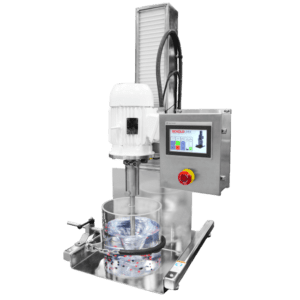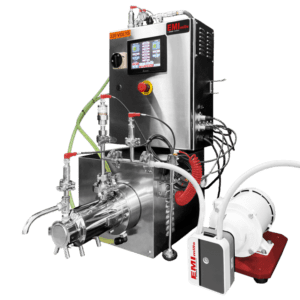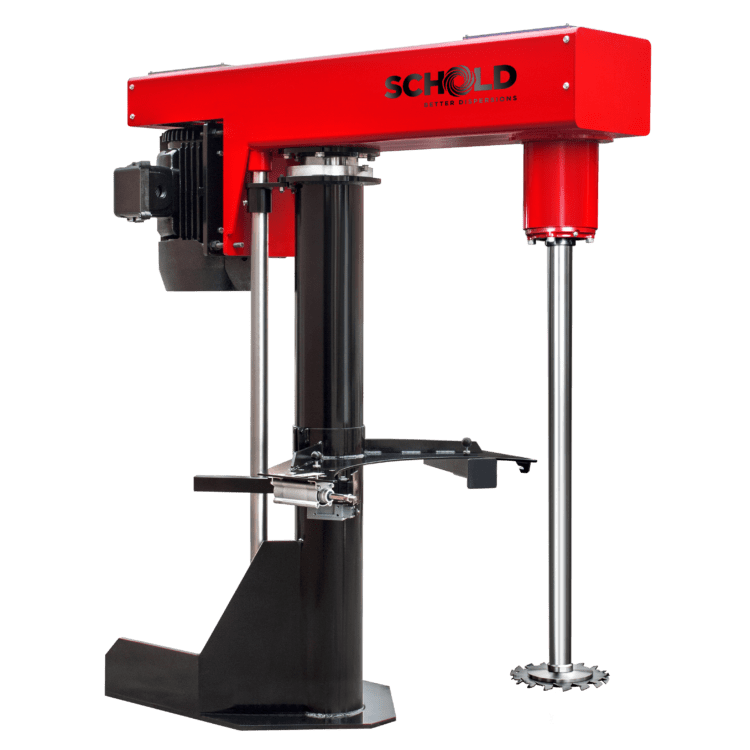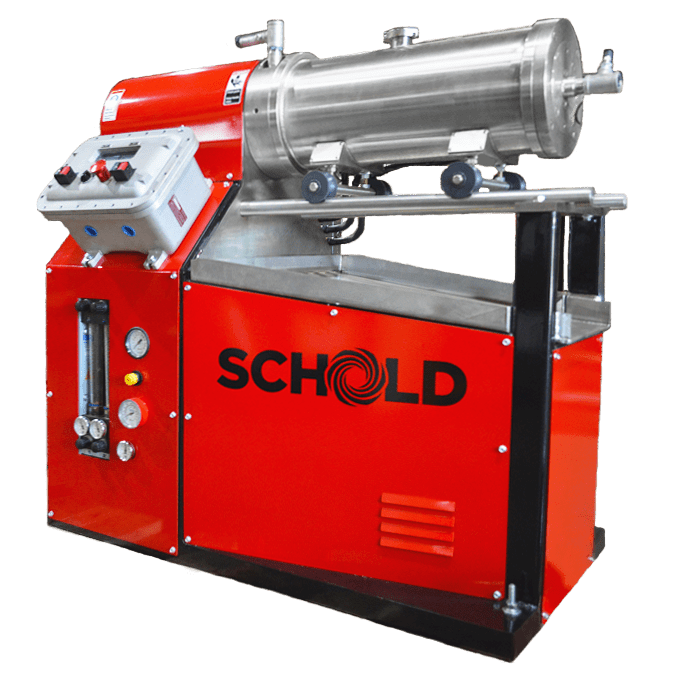PHARMACEUTICALS
Schold serves as a trusted partner for the pharma industry, delivering specialized laboratory and industrial dispersers, mixers, and mills. Our equipment achieves precise dispersion of pharmaceutical ingredients, ensuring uniform blending for diverse formulations, and optimal particle sizes for enhanced drug performance.
Product Applications
Pharmaceuticals leverage an array of applications through the utilization of dispersers, mixers, and mills. Our team of experts works with many companies in this space, and our equipment is custom designed to process these applications (along with many others):

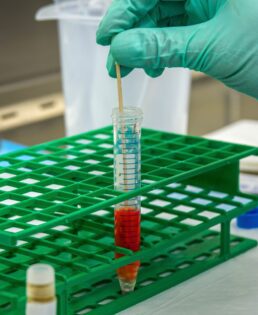
- Drug Formulation: Lab dispersers and mixers formulate drug compounds, ensuring uniform dispersion and mixing of active pharmaceutical ingredients (APIs) with excipients.
- Tablet and Capsule Manufacturing: Industrial mixers produce solid oral dosage forms such as tablets and capsules, ensuring homogeneity of the blend for consistent dosing.
- Creams and Ointments: Lab dispersers and mixers develop topical pharmaceuticals, ensuring uniform dispersion of APIs in creams and ointments.
- Liquid Syrup Production: Industrial mixers blend and disperse ingredients in the production of liquid pharmaceutical formulations such as syrups.
- Suspensions and Emulsions: Lab dispersers create stable suspensions and emulsions, ensuring even distribution of particles or droplets in liquid pharmaceuticals.
- Vaccine Production: Industrial mixers manufacture vaccines, ensuring thorough mixing of antigenic components for consistent and effective formulations.
- Injectable Solutions: Lab and industrial mixers prepare injectable solutions, ensuring precise dispersion of APIs and maintaining stability.
- Nanoparticle Formulation: Mills reduce particle size in the pharmaceutical industry, including the formulation of nanoparticles for drug delivery applications.
- Dry Powder Inhalers: Mills achieve the required particle size in the production of dry powder inhalers, ensuring optimal drug delivery to the respiratory system.
- Granulation Process: Industrial mixers and mills are used in the granulation process, where powder particles are agglomerated to form granules for easier compression into tablets.
- Liposome Formulation: Lab dispersers and mixers are used in the formulation of liposomes, which are lipid-based vesicles used for drug delivery purposes.
- Biopharmaceutical Manufacturing: Lab and industrial mixers are essential in the production of biopharmaceuticals, ensuring the proper blending of biological molecules.
- Oral Liquid Solutions: Lab and industrial mixers prepare oral liquid solutions, ensuring consistent dispersion of pharmaceutical ingredients.
- Quality Control and Sample Preparation: Lab dispersers and mixers are used for quality control purposes and sample preparation in laboratories to ensure accurate and representative testing.
Processing Challenges
Pharmaceuticals manufacturers encounter a spectrum of challenges during processing, which demands a meticulous approach to ensure product consistency, quality, and compliance. Whether you choose Schold or another partner, selecting the proper equipment is crucial for overcoming these common issues:
- Precise Dosage Control: Achieving accurate dispersion of active pharmaceutical ingredients (APIs) is critical for precise dosages, impacting the efficacy and safety of formulations.
- Uniform Particle Size Distribution: Ensuring a controlled and uniform particle size distribution is crucial for optimizing drug performance, affecting dissolution rates and therapeutic outcomes.
- Contamination Control: Mitigating the risk of cross-contamination during mixing and milling processes is essential to maintain the purity and safety of pharmaceutical products.
- Regulatory Compliance: Adhering to strict regulatory requirements, including meticulous documentation and GMP compliance, is foundational for ensuring product quality and consistency.
- Scaling Up Production: Adapting processes for larger scales while maintaining precision, uniformity, and compliance with regulatory standards is crucial for meeting market demands.
- Handling High-Potency Compounds: Ensuring the safe dispersion of high-potency APIs while minimizing operator exposure risks is critical, requiring advanced containment strategies.
- Equipment Cleaning and Validation: Thorough equipment cleaning and validation processes are imperative to prevent cross-contamination and ensure pharmaceutical products meet high safety and quality standards.
- In-line Monitoring and Quality Assurance: Incorporating in-line monitoring technologies is vital for real-time quality control during processing, enhancing overall quality assurance and consistency.
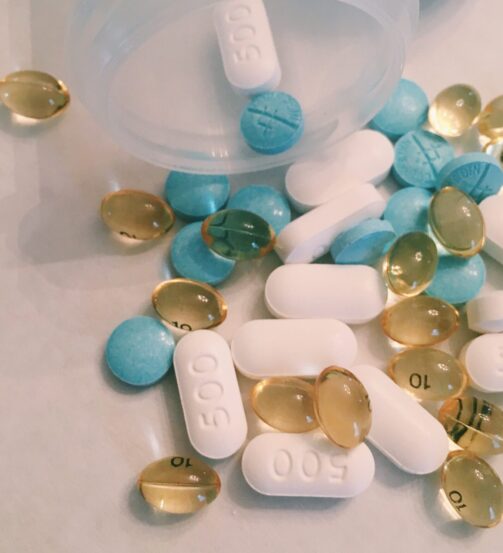
Recommended Processing Equipment
Here are the most common base models/designs used in the pharmaceuticals industry. The Schold team of experts can assist with any questions or customized options specific for your application.

